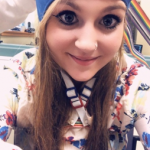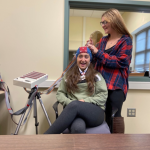There are many theories on how children develop their sense of right and wrong. One of the most prominent of these theories is by psychologist Lawrence Kohlberg.
Kohlberg developed different theorized stages of morality that changed as children grew and developed. He tested these theories using the “Heinz Dilemma”, where a man’s wife has cancer and only a single drug may save her. A local pharmacist discovered the drug, and can make it for $200. However, he sells it for $2,000. The woman’s husband, Heinz, is only able to gather $1,000 to purchase the drug from the pharmacist. The pharmacist wouldn’t negotiate. So, Heinz breaks into the pharmacy in the night and steals the drug to cure his sick wife. Kohlberg then asked the children, “Should Heinz have done that?” The answers the children gave weren’t so much judged as right or wrong, but why they believed so. From here Kohlberg developed his stages of morality:
- Preconventional Stage of Morality
This stage is the one most often exercised by younger children, though it can be used by people throughout the lifespan. In this stage, people view rules as important above all else. They believe morality is about avoiding punishment. So, kids at this stage may say what Heinz did was wrong because he broke the law by stealing.
- Conventional Stage of Morality
This stage is present in older children, but like the preconventional stage of morality, it can be used by older people as well. This stage mostly focuses on conformity. People in this stage judge morality and their actions based on whether or not people would be mad at them, whether or not an act is “nice”, or if an action is “normal” or not. Since people in this stage try to think more of society as a whole and not just the self, they may say that it’s not nice to steal from the pharmacist since he may need the money to care for his own family, and law and order should be maintained, authority respected.
- Postconventional Stage of Morality
This stage is where people focus in on abstract reasoning and universal principles of ethics. These ideas may not conform to laws and generally held beliefs in society. For example, someone may say stealing the drug is right because it’s unethical to profit off the sick and dying for personal gain.
There are many criticisms of Kohlbrg’s theory. His sample was biased toward white, middle-class male children. Psychologists such as Carol Gilligan observed that more often, women remained in the third stage of development, as they were generally more concerned with the well-being of others and social relationships. People also say that there’s a difference between knowing what to do versus our actions. Even if someone thinks it’s right to steal the drug, that may not actually be their course of action due to fear of consequences, etc.
Morality is a complicated concept, as is figuring out how we develop morality as we grow up. Kohlberg’s theory is just one of many ways to begin thinking about it.
Read more here











